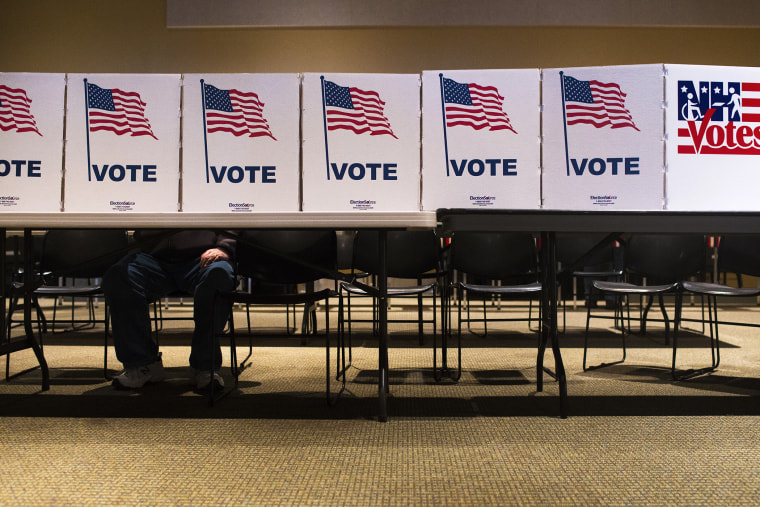Last year, New Hampshire became the only state in the Northeast in which Republicans control the governor's office and both chambers of the state legislature. Given recent history, it probably shouldn't come as too big of a surprise that the Granite State's GOP majority picked a fight over voting rights.
The Union Leader reported on Friday on significant new developments.
Gov. Chris Sununu has signed into law a controversial election bill that opponents say will constrain voting by students and other transient residents of the state.Supporters applauded the move as a way to ensure that only bonafide New Hampshire residents vote in New Hampshire elections."After receiving an advisory opinion from the New Hampshire Supreme Court finding the bill to be constitutional, I signed HB 1264 into law," the governor said in a statement released Friday after a low-key signing with no ceremonial trappings, as student protesters lined the hall outside his door.
Those who follow voting rights are probably accustomed to go-to voter suppression tactics that have become alarmingly common nationwide: unnecessary voter-ID laws, voter-registration hurdles, measures to curtail early voting, etc.
But the fight in New Hampshire, one of the country's most competitive and evenly split electoral battlegrounds, is a little different.
The Granite State is home to some sizable college towns, featuring plenty of young people -- some of whom moved to the state from elsewhere -- who tend to vote Democratic. For Republicans, this is a "problem" that needs fixing.
With this in mind, as soon as Republicans had control over the levers of state policymaking, they got to work on a plan that critics consider a "poll tax": those who want to vote in New Hampshire without a state-issued driver's license will now have to establish residence, which under the new plan, won't necessarily be easy.
In fact, it will require some people to pay hundreds of dollars in fees.
The state Supreme Court has traditionally been hostile to voter-suppression tactics, but New Hampshire's Republican governor -- Chris Sununu, who is currently in his first term -- appointed two of the court's five members. It's this court that issued a 3-2 advisory ruling on the bill, which Sununu signed just one day later.
In theory, opponents could take the case to the federal judiciary, but given the direction of the U.S. Supreme Court, especially when it comes to voting rights, success seems unlikely.
Slate's Mark Joseph Stern, however, made the case yesterday that the fight isn't entirely over just yet. The new policy in New Hampshire won't be implemented until next year, which means, as Stern argued, this year's elections in the Granite State "will decide whether Republicans will be successful in their years-long quest to suppress the college vote, a move that would help them further entrench their own political power."
Every relevant office in New Hampshire will be up this year, including the governor's office and every seat in the state legislature.
